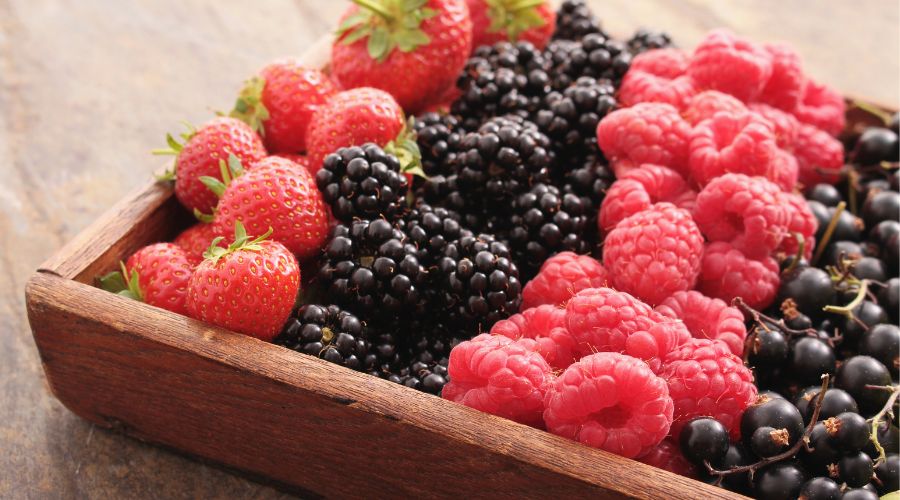Eating more fruit and veg could help reduce depression – study
9th January 2025
Higher intakes of both fruit and vegetables were associated with lower symptoms of depression over time.

A landmark twin study has suggested that increasing intakes of fruit and vegetables could help to reduce depression in older adults.
The benefits of high fruit and vegetable intake had been previously reported, but few studies have focused on adults over 45 or twins.
Scientists at the University of New South Wales used four major international studies of 3,483 twins, taking place over 11 years, in Australia, Denmark, Sweden and the USA.
Published in Scientific Reports, findings revealed that higher intakes of both fruit and vegetables were associated with lower symptoms of depression over time.
Lead author and post-doctoral fellow Dr Annabel Matison said: “The findings present another argument for increasing fruit and vegetable intake in adults over 45 years of age.”
Depressive disorders significantly contribute to disease burden in adults over the age of 55, ranging from mild depression that doesn’t reach the threshold of clinical diagnosis but still affects quality of life, to severe major depressive disorder.
Individuals with major depression exhibit higher levels of pro-inflammatory and oxidative stress markers and diminished levels of antioxidant markers, when compared to healthy individuals.
Twin design a benefit
The study has a number of strengths, in particular its twin design.
Co-author Dr Karen Mather says that twin studies provide a unique opportunity to address some of the limitations of previous observational studies.
“Twin pairs share 50–100% of their genetic background and when raised together share the same family environment,” she said.
“One of the advantages of the twin design is that it can help address the issue of unwanted factors, such as socioeconomic status early in life, influencing the results.”
READ MORE: Compound found in two popular fruits could help prevent bowel cancer
Low intake of fruit was defined as an average 0.3 serves per day and low intake of vegetables was 0.5 serves per day. High fruit intake was 2.1 serves per day and high vegetable intake was 2.0 serves per day.
Interestingly, total fruit and vegetable consumption in the high category still fell notably below the dietary recommendations of most countries.
“We found that fruit and vegetable consumption in the two large Scandinavian studies were particularly low, with the average for both being less than half the World Health Organisation recommended intake of at least five serves per day,” said Dr Matison.
“We are unclear what the reduction in depression scores would be if intakes were increased to recommended levels.”
Gut microbiome importance
According to the researchers, the beneficial relationship between fruit and vegetable intake and depression is most likely due to high levels of dietary fibre, vitamins and micronutrients.
Consumption of fruit and vegetables also appears to positively impact the composition of the gut microbiome and protect against oxidative damage to the brain.
“The importance of the gut microbiome and its potential influence on depression as a result of inflammation, both systemic and neuroinflammation, is becoming increasingly well understood,” said Dr Matison.
Read more fruit news.
